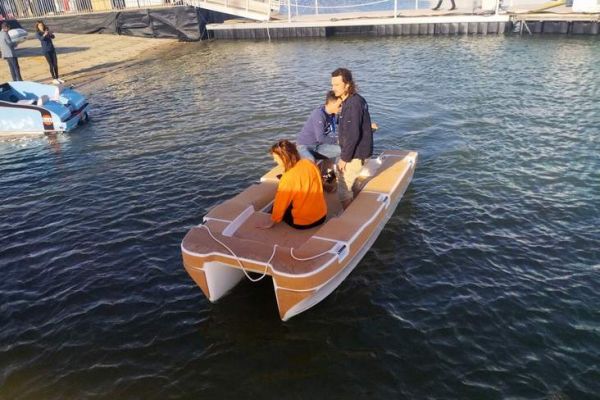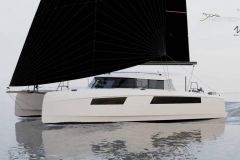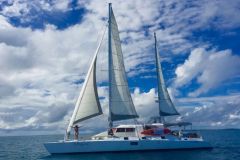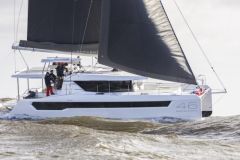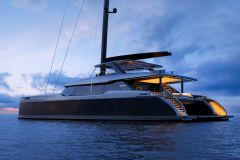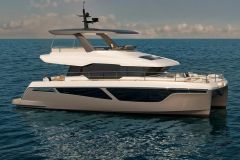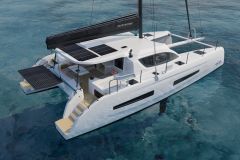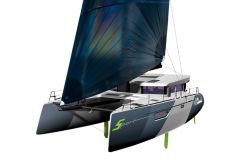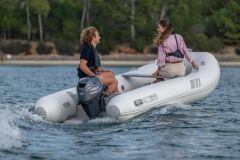A tender with the same lifespan as the boat
Enzo Erouart grew up on a boat with his parents. The young man has therefore had plenty of opportunity to practise dinghy transfers in numerous ports at all latitudes, but also to see how these essential boats age! And the results are not always positive: "We've had several inflatable and semi-rigid tenders, which always ended up damaged, with leaking bladders and other ageing. In recent years, we've switched to rigid and no longer have any problems. However, the design of the tenders hasn't changed much. So I wanted to make a tender that's easier to repair than a RIB, that's built using the same methods as the parent boat, and so has the same lifespan as the boat."
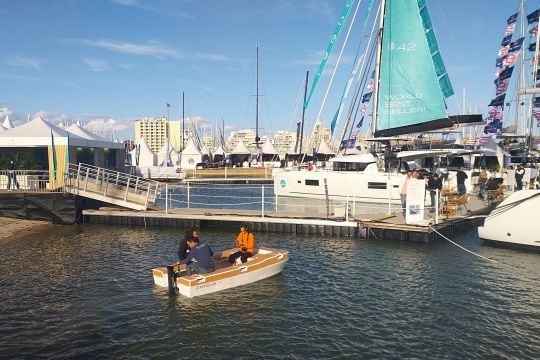
A stable, efficient catamaran tender
In 2023, Enzo set up his own shipyard, Catcha Marine, to build his first dinghy in Canet-en-Roussillon. Named Catcha 320, the dinghy, which can also be used as an independent boat, has a catamaran hull. With a length of 3.20 m and a beam of 1.55 m, it is extremely stable. Although the 74-kilogram version presented for the 1st time at the Grande Motte 2024 international multihull boat show still weighs a lot, this is compensated for by an available volume far superior to that of a RIB of the same length. 4 passengers can be comfortably accommodated, and a large lockable bow locker secures personal belongings and the on-board electric motor for a trip ashore.
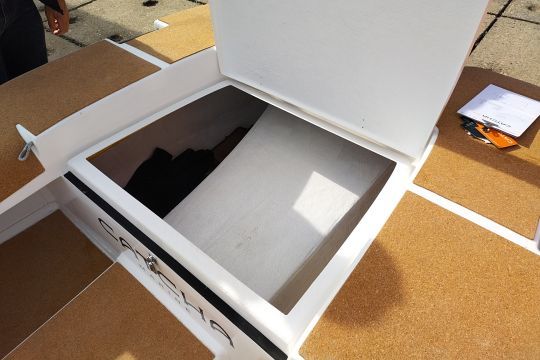
Tested in the harbour basin of La Grande Motte, we found that the 1 kW Temo electric motor installed on board was more than sufficient to move the Catcha 320 with 3 adults on board at an acceptable speed.
A self-draining floor and 380 liters of buoyancy under the floors make the tender safe.
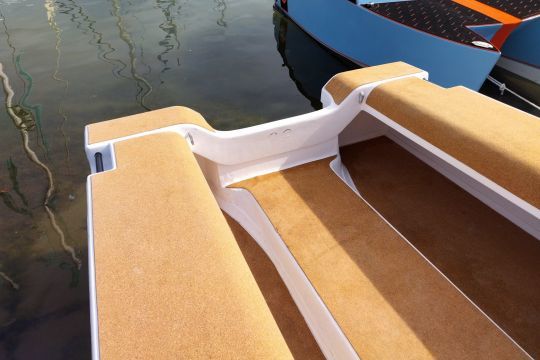
Customization and upgrades
The version we tested featured a rather elegant cork-based anti-skid. Machinable, the material allows the tender to be customized. After a 1st version in fiberglass and vinylester resin for "Upmarket compared with polyester, without having to switch to epoxy" enzo Erouart plans to test sustainable biocomposite alternatives: "The moulds are there, so now I can test different materials."
Durability, made in France, comes at a price, unfortunately rather high compared to the competition. In its first version, the Catcha 320 is priced at ?12,700.
